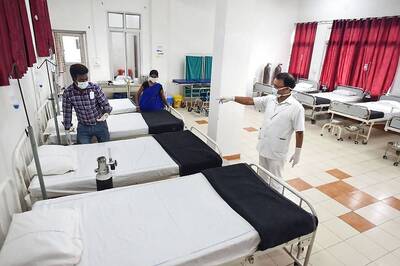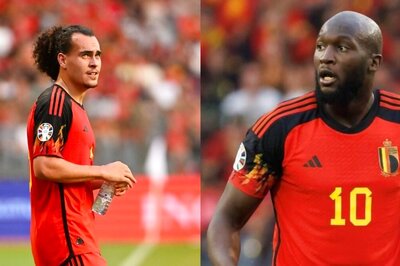
views
Moscow: Malaysia Airlines flight MH17 was shot down by a missile fired from a launcher brought into Ukraine from Russia and located in a village held by pro-Russian rebels, international prosecutors said on Wednesday.
The findings counter Moscow's suggestion that the passenger plane, en route from Amsterdam to Kuala Lumpur in July 2014, was brought down by Ukraine's military rather than the separatists. All 298 people on board, most of them Dutch, were killed.
The conclusions were based on thousands of wiretaps, photographs, witness statements and forensic tests during more than two years of inquiries into an incident which led to a sharp rise in tensions between Russia and the West.
Among the key findings were: the plane was hit by a Russian-made Buk-9M38 missile; the missile was fired from the rebel-held village of Pervomaysk in eastern Ukraine; and the launcher was transported into Ukraine from Russia.
"This Buk trailer came from the territory of the Russian Federation, and after the launch it was returned again to the territory of the Russian Federation," said Wilbert Paulissen, chief investigator with the Dutch national police.
The Ukrainian government said the findings pointed to Russia's "direct involvement". Russia - which has always denied Moscow or pro-Russian rebels were responsible - rejected the prosecutors' conclusions, saying they were not supported by technical evidence and the inquiry was biased.
Earlier on Wednesday, Kremlin spokesman Dmitry Peskov said its radar data had "identified all flying objects which could have been launched or were in the air over the territory controlled by rebels at that moment".
"The data is clear-cut ... there is no rocket. If there was a rocket, it could only have been fired from elsewhere," he said.
The investigators, from the Netherlands, Australia, Belgium, Malaysia and Ukraine, said they had not had access to Moscow's radar images but would gladly include a Russian contribution to the inquiry.
Ukrainian and Western officials, citing intelligence intercepts, have long blamed the pro-Russian rebels for the incident, which played a big part in a decision by the European Union and United States to impose sanctions on Russia over the Ukraine conflict and has damaged Dutch-Russian economic ties.
SUSPECTS
In reaction to the investigators' findings, Dutch Prime Minister Mark Rutte called on Russia "to lend all possible cooperation" to the inquiry, which will now shift its focus to identifying individual suspects.
Prosecutors said that while they had not brought charges against culprits or established a court, they had identified 100 individuals of interest in relation to the incident on July 17, 2014.
"Of a number of them, we know pretty exactly what their role and position was, for instance those who organised the arrival of the Buk rocket and who were in charge of the transport that day," said Fred Westerbeke, chief prosecutor at the Netherlands National Prosecutor's office.
"We know exactly what happened, but who exactly was in charge, and whether it was done intentionally, there the investigation is still continuing," Westerbeke said.
He declined to specify the nationality of any potential suspects, and called on witnesses to come forward and help determine who gave the order to shoot the plane down.
Victims' families, who were informed of the findings earlier in the day, were sceptical about the investigation's progress.
Silene Fredriksz, whose son Bryce was on the airplane with his girlfriend, Daisy Oehlers, said Russia would never hand over any suspects voluntarily.
Moscow was "going to have to be put under intense pressure, with sanctions - that's the only way to make it possible", she added.
A civilian investigation by the Dutch Safety Board also concluded last year that MH17 was hit by a Buk missile fired from eastern Ukraine, but did not specify who fired it. The board criticised Ukraine's government for leaving its airspace open to civilian traffic.
At the time of the incident, pro-Russian separatists were fighting Ukrainian government forces in the region. The Boeing 777 broke apart in mid-air, flinging wreckage over several kilometres (miles) of fields in rebel-held territory.
Harun Calehr, uncle of two boys killed in the crash, said he was not holding out hope for a swift resolution. "I think there will never be a judicial conclusion to this nightmare," he said.
"Even a political agreement with financial compensation for the victims' families by Russia and Ukraine seems tenuous, and perhaps two decades in the future."

















Comments
0 comment